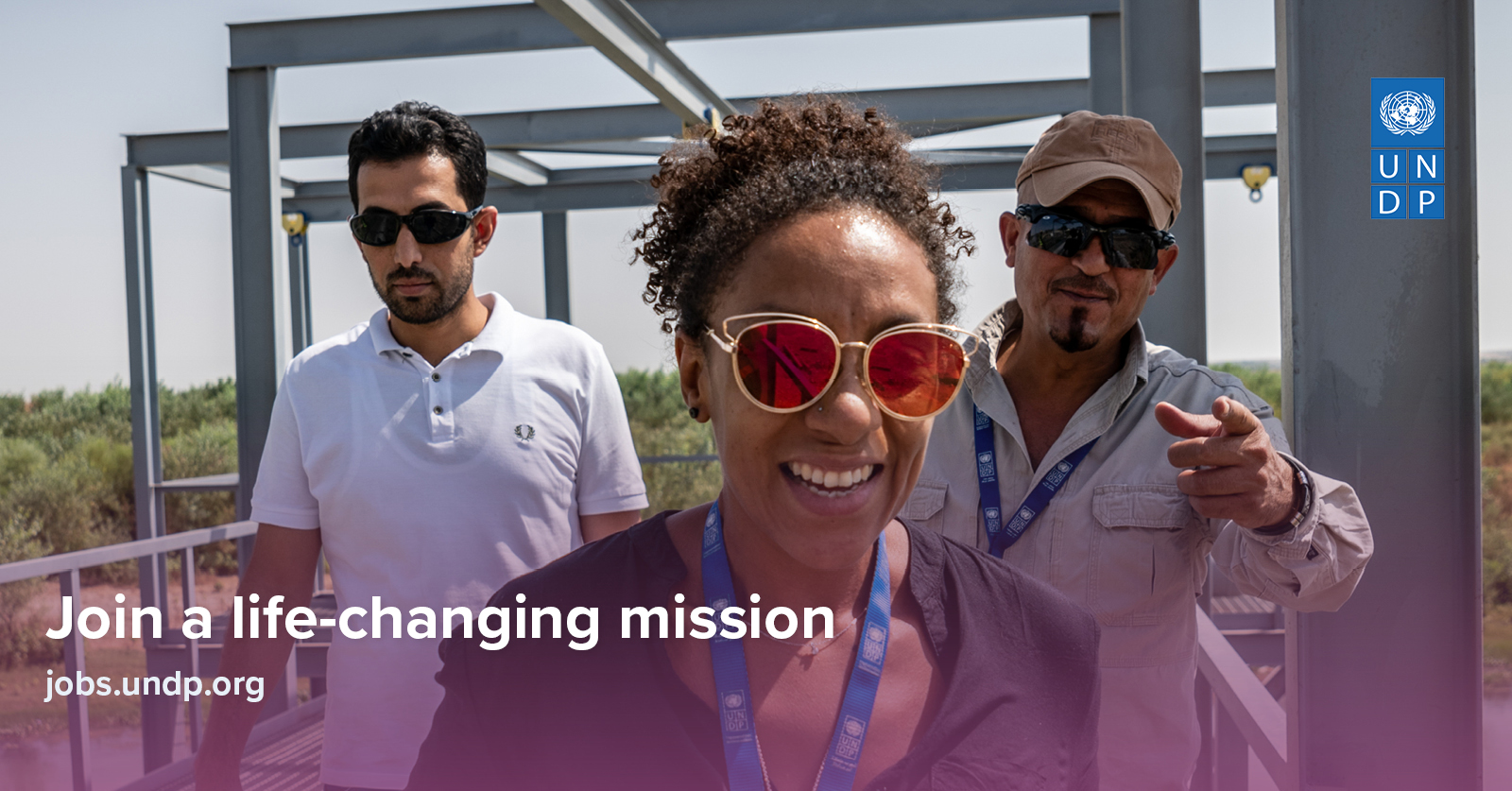
The Consultant selected to undertake the assignment must fulfil the following minimal requirements:
Education:
- Bachelor’s degree in IT, economics, management or similar field.
Experience:
- 10 years of experience in the banking sector;
- 5 years of experience in digitalization projects;
- Experience working with government infrastructure for electronic payments will be considered as an asset.
Language:
- Fluency in Serbian and English language;
DOCUMENTS TO BE INCLUDED WHEN SUBMITTING THE PROPOSALS.
Application Procedure:
Qualified and interested candidates are asked to submit their applications via UNDP Web site: UNDP in Serbia under section “Jobs” no later than 15 December 2022.
Application should include:
- CV in English language containing date of birth, contact information (home address, phone number, e-mail) and timeline of work experience (including description of duties).
- Offeror’s Letter (only PDF format will be accepted) confirming Interest and availability for the Individual Contractor (IC) Assignment. Can be downloaded from the following link: https://www.undp.org/sites/g/files/zskgke326/files/2022-07/confirmation.docx. The Offeror’s Letter shall include a financial proposal specifying a total lump sum amount (USD) for the tasks specified in this announcement with a breakdown of costs (Offeror’s Letter, including Annex 2, Table A: Breakdown of costs & Table B: Breakdown of costs by deliverables).
- Cover Letter – explaining why you are the most suitable for the work should be included in the CV.
In order to apply please merge above listed documents into a single PDF file. The system does not allow for more than one attachment to be uploaded.
The shortlisted candidates may be asked to provide copies of diplomas and any other certificates providing evidence of their education and experience in relevant fields.
Any request for clarification must be sent by standard electronic communication to the e-mail vacancy.rs@undp.org. The procuring UNDP entity will respond by standard electronic mail and will send response, including an explanation of the query without identifying the source of inquiry, to all consultants.
Financial Proposal:
The financial proposal shall specify a total lump sum amount, and payment terms around specific and measurable (qualitative and quantitative) deliverables (i.e. whether payments fall in installments or upon completion of the entire contract). Payments are based upon output, i.e. upon delivery of the services specified in the TOR. In order to assist the requesting unit in the comparison of financial proposals, the financial proposal will include a breakdown of this lump sum amount (including travel, per diems, and number of anticipated working days).
Travel
In case of travel, costs incurred will be covered by project. In general, UNDP should not accept travel costs exceeding those of an economy class ticket. Should the IC wish to travel on a higher class he/she should do so using their own resources.
Evaluation
1. Cumulative analysis
When using this weighted scoring method, the award of the contract should be made to the individual consultant whose offer has been evaluated and determined as:
a) responsive/compliant/acceptable, and
b) Having received the highest score out of a pre-determined set of weighted technical and financial criteria specific to the solicitation.
* Technical Criteria weight; 70%
* Financial Criteria weight; 30%
Only candidates obtaining a minimum of 49 points would be considered for the Financial Evaluation
|
Criteria |
Weight |
Max. Point |
|
Technical-desk review |
70% |
70 points |
|
Criteria A |
Proven experience and knowledge of infrastructure for ePayment. Relevant working experience must be clearly demonstrated through submitted CV. |
40 |
|
Criteria B |
Working experience in the digitalization of the banking services and electronic payment (to be demonstrated through CV). |
30 |
|
Financial |
30% |
30 points |
Additional Information:
In the case of engagement of Civil servants under IC contract modality a no-objection letter should be provided by the Government entity. The ‘no-objection’ letter must also state that the employer formally certifies that their employees are allowed to receive short-term consultancy assignment from another entity without being on “leave-without-pay” status (if applicable), and include any conditions and restrictions on granting such permission, if any. If the previous is not applicable ‘leave-without-pay’ confirmation should be submitted.
Engagement of Government Officials and Employees
- Government Officials or Employees are civil servants of UN Member States. As such, if they will be engaged by UNDP under an IC which they will be signing in their individual capacity (i.e., engagement is not done through RLA signed by their government employer), the following conditions must be met prior to the award of contract:
(i) A “No-objection” letter in respect of the individual is received from the Government employing him/her, and;
(ii) The individual must provide an official documentation from his/her employer formally certifying his or her status as being on “official leave without pay” for the duration of the IC.
- The above requirements are also applicable to Government-owned and controlled enterprises and well as other semi/partially or fully owned Government entities, whether or not the Government ownership is of majority or minority status.
- UNDP recognizes the possibility that there are situations when the Government entity employing the individual that UNDP wishes to engage is one that allows its employees to receive external short-term consultancy assignments (including but not limited to research institutions, state-owned colleges/universities, etc.), whereby a status of “on-leave-without-pay” is not required. Under such circumstance, the individual entering into an IC with UNDP must still provide a “No-objection” letter from the Government employing him/her. The “no objection” letter required under (i) above must also state that the employer formally certifies that their employees are allowed to receive short-term consultancy assignment from another entity without being on “leave-without-pay” status and include any conditions and restrictions on granting such permission, if any. The said document may be obtained by, and put on record of, UNDP, in lieu of the document (ii) listed above.





